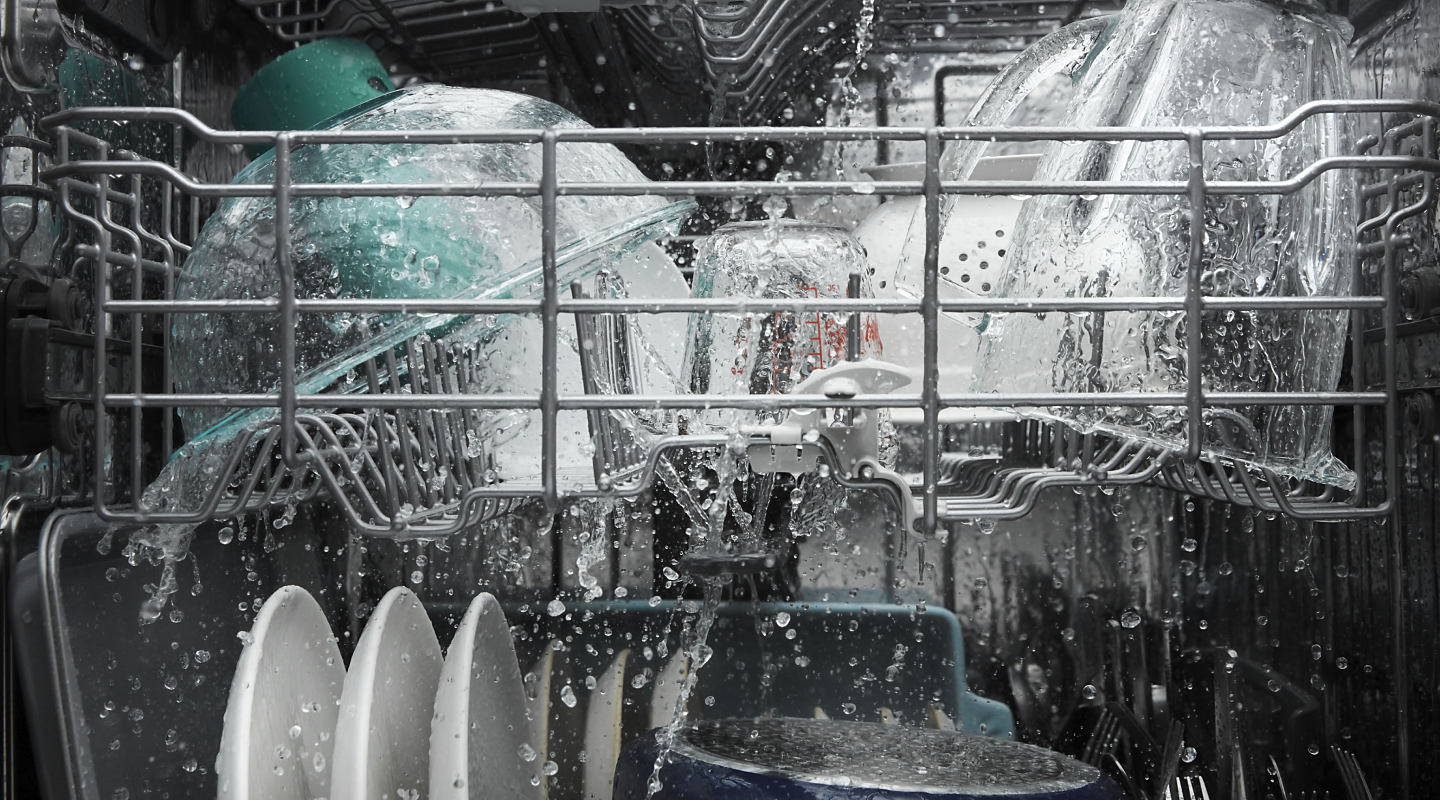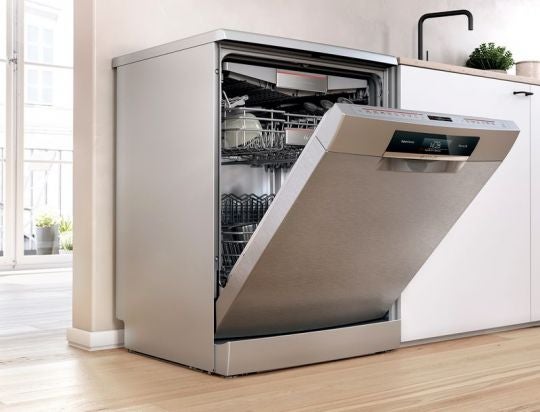This article is your guide to answering the question: Is hand washing or using a dishwasher better for saving money and energy? People are often surprised to learn that dishwashers can actually save water, energy, and money over time compared to handwashing. If you want to learn more about dishwasher electricity usage, keep reading.
We hope you find this post helpful and if you are looking for different ways to become more energy efficient be sure to check out our energy savings calculator!
The Energy Professor Electricity Rate Check Tool
What is Better – Dishwashing or Handwashing?

Dishwashers: Surprisingly to some, modern dishwashers are highly efficient, using about 3 to 5 gallons per load. In contrast, handwashing can easily consume up to 27 gallons of water per session. This makes dishwashers the clear winner in water conservation.
Dishwashers not only save water but also optimize energy use. Thanks to advancements like eco-modes and sensors, they adjust water and energy consumption based on the load. Additionally, the high temperatures they use ensure better sanitization compared to handwashing.
Environmental Impact of Dishwashers vs. Hand Washing
When considering sustainability, using a dishwasher is often the more eco-friendly choice. Modern ENERGY STAR® dishwashers are designed to reduce both water and electricity usage, and when fully loaded, they operate at maximum efficiency.
Handwashing, on the other hand, often involves running hot water continuously, which not only wastes water but also increases electricity or gas usage due to water heating. Unless you follow strict water-saving techniques, hand washing tends to have a larger environmental footprint.
Related post: How Much Water Does a Dishwasher Use?
Does Hand Washing Dishes Save Money?

It might seem like handwashing would be cheaper, but the opposite is often true. Between the cost of heating water, the wasted water from continuous tap use, and the time investment, handwashing can end up being more costly in the long run.
A fully loaded, energy-efficient dishwasher can cost as little as $0.10–$0.30 per cycle when factoring in water and energy. In comparison, running hot water for 15 minutes straight can use 2 to 4 times more energy.
How to Maximize Dishwasher Efficiency
-
Only run full loads to get the most out of each cycle.
-
Use eco or energy-saving modes whenever available.
-
Avoid pre-rinsing dishes—most modern dishwashers are designed to handle dirty plates.
-
Schedule your dishwasher to run during off-peak electricity hours (if your utility plan supports it).
These simple tips can help you cut energy bills while minimizing your environmental impact.
Related Post: How to Improve Air Quality At Home
Dishwashing vs Hand Washing FAQ

Do dishwashers save water compared to handwashing?
Yes, modern dishwashers, especially those with efficient settings, generally use less water than handwashing—often between 3 to 5 gallons per cycle.
How much water do hand-washing dishes typically use?
It can vary based on practices, but handwashing dishes can consume up to 27 gallons of water for a significant load, especially if the tap is left running.
Does a dishwasher use hot water?
Yes, and it’s typically hotter than what’s bearable for handwashing, ensuring better sanitization. With features like eco-modes, modern dishwashers optimize energy use, making them more efficient. So, when considering hand wash vs dishwasher in terms of energy, dishwashers again come out ahead.
What’s the difference between dishwasher vs hand washing water usage?
Dishwashers tend to use significantly less water, especially modern ones with eco-modes. Hand washing can vary but often uses more water, especially if done without conservation techniques.
Do you Need Cheaper Electricity?
If you’ve taken the time to understand the information on your bill and discovered you’re paying more than you’d like for your electricity, have you looked around for a cheaper deal? The Energy Professor has a wealth of information on ways to save on your utilities, including details of top deals that could significantly reduce your monthly or quarterly electricity bills.
We hope you found this article helpful! If you are looking for ways to increase energy efficiency and sustainability in your home be sure to take a look at all of the latest renewable energy options in your area. The Energy Professor helps residential and small business owners find qualified energy suppliers in New York, New Jersey, Pennsylvania, Texas, Ohio, Maryland, Illinois, and Massachusetts


